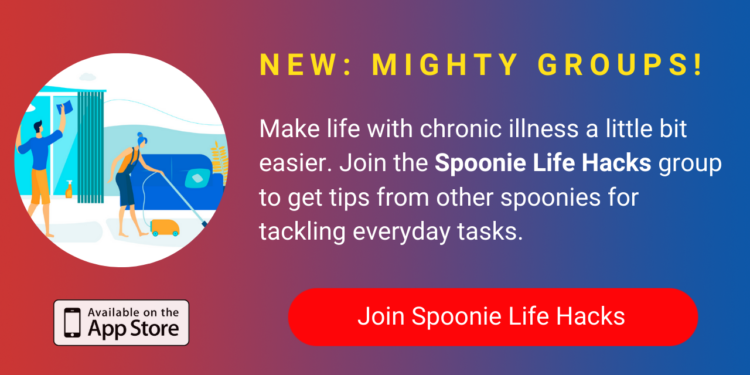Having an invisible illness does have one positive — that one can move through the world without anyone knowing they’re sick. It’s right in the name after all. As someone living with chronic fatigue syndrome (CFS), this has been true for me.
First, I should say that it hasn’t always been true. Sometimes people can tell. Many years ago, they could always tell. I was constantly sent to the nurse and then sent home, not because I asked to see the nurse but because teachers insisted I go because I looked so sickly.
Through a series of doctors, I got a little better and then a little makeup was all it took for me to be able to walk around Barnes and Noble a few times a year at most and pretend that I wasn’t sick. I was a normal book lover browsing the shop, hunting for treasures I wanted and having casual conversations will fellow readers. It was what I looked forward to most every year. It was like playing pretend. I got to be “normal” for an hour. Even thinking on these memories makes me take a deep breath and relive it. For an hour up to three times a year, it felt like CFS had to surrender to me instead of me to it.
Really, though, that’s the only positive.
Since no one can see that I’m sick by looking, when it does come up, people insist through a series of pointed and often rude questions that I prove to them that I’m sick. As if I owe them something — as if I owe them the hardest and most confusing things about myself. They often act like there’s a magic word or sentence that will make them believe me. It’s as if they’re the gatekeeper to respect and unless I have that magic word or sentence, they don’t have to let me beyond the gate and see me as human and treat me with respect. Anger, embarrassment and sadness one wouldn’t understand unless they’ve been there came up often, of course. People don’t understand what they can’t see. Even when people can see one’s illness, disorder or trauma, insensitivity is the natural order of things unfortunately. Getting into that is a topic for another day, so I’ll move on.
Here’s what I’ve learned over the years. One, I don’t owe anyone my life story, and I tell them so. Depending on the question and my mood (if I’m being honest) these are things I say: If making you believe me would make me healthy, I would care. Since it won’t, I don’t. A nicer option, and one I use most of the time: I don’t want to explain/want to talk about it/feel the need to explain. Another truthful answer is: It’s a long story.
Most people will get that you don’t want to talk about it at that point, or they don’t want a long story! After all, they wanted me to quickly and succinctly sum up to them why I’m different and how I got to be that way. That’s what’s convenient for them. It isn’t for me.
I’m not one to apologize for having an illness. I’m usually blunt and don’t often pull the proverbial, verbal punches as it is. I don’t bow to ignorance or hostility. I’ll meet you where you’re at usually with more understanding and always with a leg up, because I actually know what I’m talking about.
For all the invisible illness individuals out there, you don’t owe anyone anything. Someone’s opinion of you isn’t your concern. It doesn’t change anything. It doesn’t change good days or bad days or all the hard circumstances you’ve overcome.
Remember your story is your own, and no one can possibly know everything about you, especially just by looking.
UnSplash via Lukas Medvedevas


